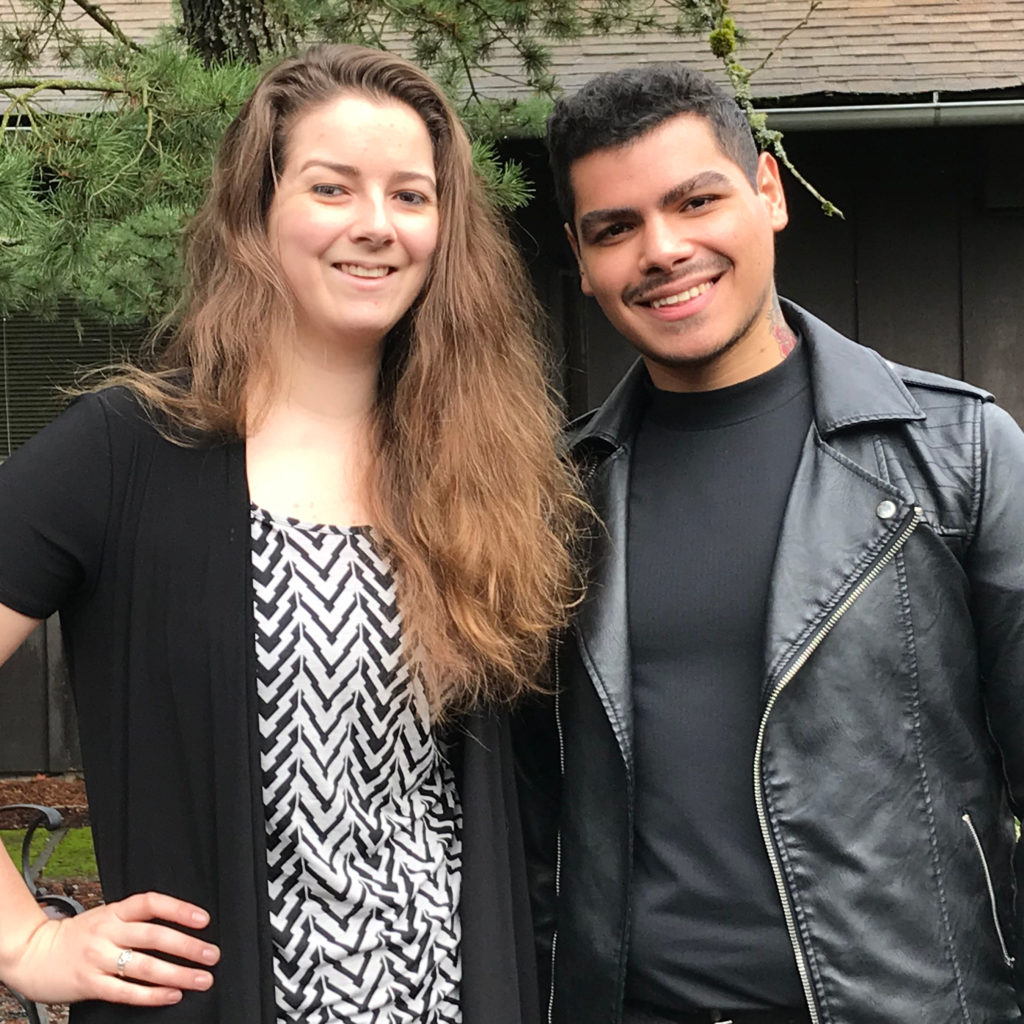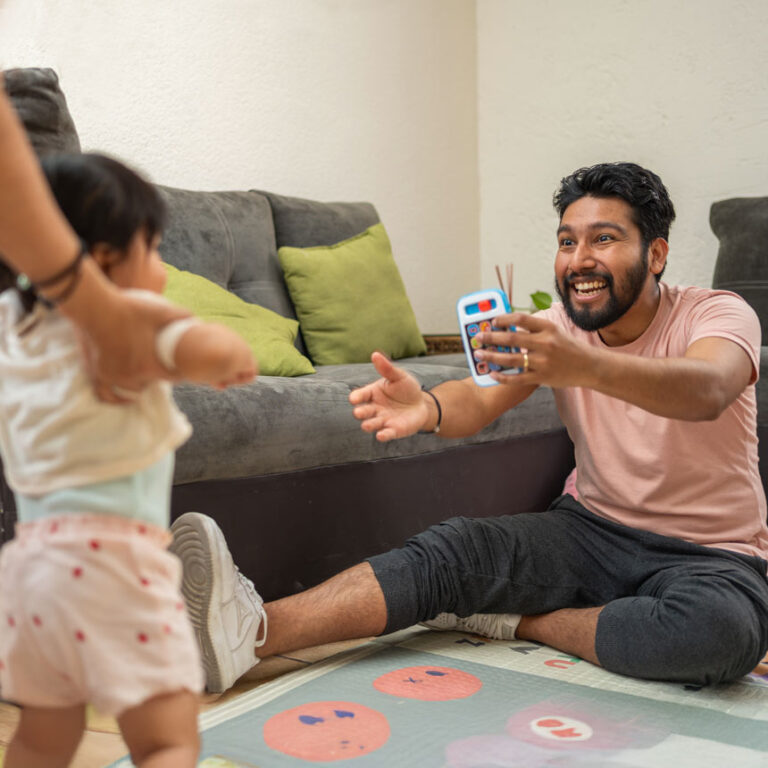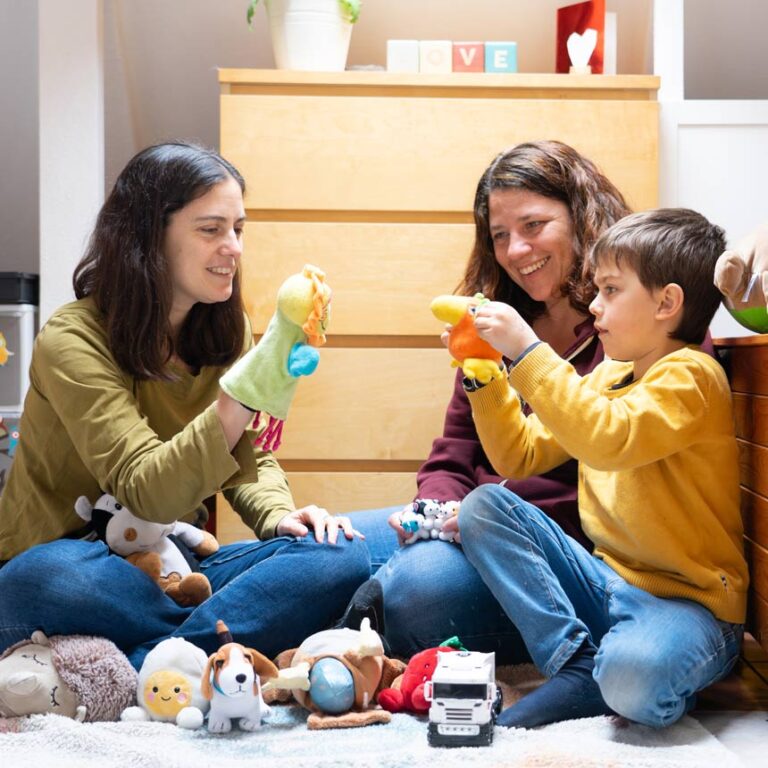Success with Supported Education

Jesse, a soft spoken, articulate and engaging singer-songwriter, began struggling with severe mental health symptoms at 14. The experience made it impossible to retain relationships or deal with challenging situations. Because he didn’t know how to cope with the overwhelming emotions he was feeling, he left high school in his senior year.
“I grew up in a very religious household … the way my mom and family would deal with it was through prayer, fasting and reading the bible … [but] not actively trying to cope with all of these emotions.”
The one constant that remained was his passion for music.
“I started singing gospel when I was really young … in my church, which is a Spanish church called Casa del Padre,” says Jesse. “But I really love all types of music, like rhythm and blues, jazz, I even love some classical pieces—especially the German operas: they are my favorite.”
But even his passion for music couldn’t help him cope, so Jesse started going to LifeWorks NW and meeting with a therapist. He took a dialectical behavioral therapy eight-week program, which was one of the first things he’d been able to complete in a long time. The ability to stick with it throughout the program showed him that there might be other things he could commit to, as well.
After his first six months of therapy, he also began working with Jen Burke, Supported Education specialist, at the Beaverton/Hillsboro Walnut sites. At first, he thought he was through with school, but the support from LifeWorks NW staff helped him recognize that he could commit to accomplishing his dreams. First Jen helped him complete his GED, then apply to college, ultimately he wants to get his degree in sociology. He is now in his second semester at PCC-Rock Creek.
While taking a writing class, he began researching LGBTQ people of color and mental health.
“I found that a lot of queer people of color were experiencing severe mental health symptoms and suicidal ideation, but weren’t being successful in treatment or weren’t going to treatment at all, because of the accessibility,” says Jesse.
“And that resonated we with me, because I feel like I’m someone who had to fight for their treatment, had to fight for their education, even had to fight for my ability to obtain my medication. I found I wanted to help people like me who had to fight and who needed somebody to fight for them. Because I was very lucky to have people like Jen, … my therapist David [Meetze], and … supported employment with Forrest [Pandit-Kerr]. They helped me fight for myself. That was very meaningful, and I want to do the same.”
“Jesse has done a really great job,” says Jen. “At times it took a lot of problem solving, for example the process of requesting accommodations for the GED test is multifaceted, and you have to navigate multiple systems. That’s why Supported Education is here, to help students navigate systems that can be confusing. So they don’t lose hope and give up. Jesse was always up for trying whatever we suggested and receptive to figuring some things out together.”
“I think that is what is great about supported education, supported employment and LifeWorks [NW],” says Jesse. “If you want to do a lot, then you guys have trusted me, so you’ll let me. If you are struggling or not doing your best then you can find a way to do better. It is not about taking on a lot and then giving up when it becomes overwhelming. That’s what I learned from [Jen]. Going through the hard part, and not giving up, which is what I have done, very much, in the past.”
Because the online system PCC uses was unfamiliar, at first he was struggling in school. He was failing his writing class and starting to slip into his old emotional quagmire.
“I didn’t know how to do this and I remember looking at my grade and thinking how am I going to change this from an F to at least passing. And you [Jen] just encouraged me. You said, ‘you don’t have to excel; you can just pass.’ That took a lot of pressure off me, because it took off the expectation that I have to be perfect. And I ended up finishing the term with an A.”
He’s accomplished goals on several fronts, and now has a job through PCC’s work study. This may be a first step on the road to helping others. He’s a college transition coach helping lower income Hillsboro high school students transition to college.
The work he continues to do with LifeWorks NW not only helps him deal with the emotions that held him back in the past. They also help him build and rebuild relationships. Before therapy, anytime a relationship became challenging, he’d give it up.
“[I’d think] it’s not worth it, they aren’t worth it, maybe I’m not worth it to keep this relationship,” says Jesse. “And there were so many times I felt that with Jen, and … my therapist and in school. And being able to go through that now is so brand new, and being able to keep my relationship with Jen and my therapist and all the other people on my team. They would meet me where I was at, and I’d have to meet them where they were at, and finding that balance was so important…that’s what’s really helped me.”
Jesse feels his family is benefiting from his work with LifeWorks NW, as well. Not only because he is better at maintaining positive relationships, but because they have learned more about themselves during the process.
“I feel like because I started this journey, my family has been more introspective and finding their own ways to cope with mental health,” he says. “They realize, whoa, we deal with a lot of the same things you deal with, you just deal with it on a different scale, a bigger scale. With me taking care of myself and them seeing that is really inspiring for me. I never thought they’d come to terms with my mental health, let alone their own … I’m really proud of them.”
This experience has reshaped his life, and he now wants to do for others, what LifeWorks NW’s team has done for him. He especially wants to help people struggling with low income and access to mental health treatment.
“My biggest dream is to start a non-profit, and work on education and outreach for LGBTQ people of color, specifically, but also education for everybody on mental health and specifically what our struggles are,” says Jesse. “Because I identify as an LGBTQ person of color … I want to educate people on what our unique struggle is and the different marginalization that contributes to our mental health. I want to spread awareness of that.
“But my main goal is to work in sociology and work in the mental health field, which LifeWorks [NW] inspired me to do. Learning so much about mental health with their program … guided me to want to work with more people who have experienced what I experience. To work with people who still have a lot of big goals and dreams and want to make a difference.”
With all of Jesse’s growth and development, one thing hasn’t changed.
“I’ll also keep performing and spread my message through music.”










